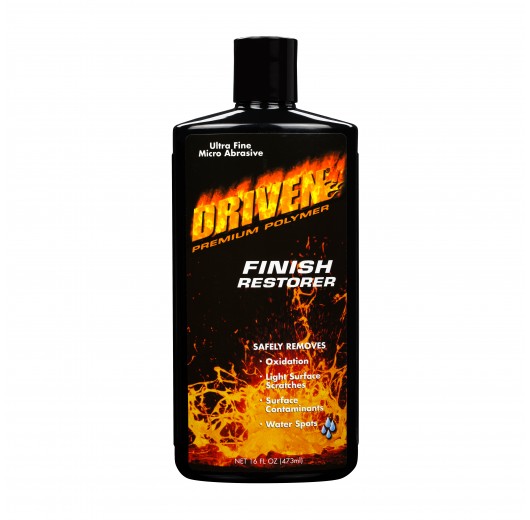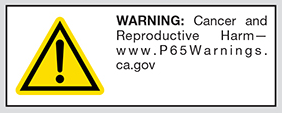Driven Finish Restorer
- Availability: In Stock
- Product Code: DRIVEN-00003
DRIVEN Finish Restorer promises and delivers unparalleled performance.
This dramatically different premium grade glazing compound was designed using the very highest quality of ultra fine micro abrasives to achieve world class results. These precision abrasives with numerous exterior facets and extremely sharp edges are the critical element for safe removal of oxidation, heavy water spots, surface contaminants, stains and light surface scratches. DRIVEN Finish Restorer simultaneously feeds the finish with a full spectrum of essential polymers and oils resulting in a phenomenal shine. Safe for all automotive and marine finishes including paint, clear coat, fiberglass gel coat and all types of metal. This unique combination of safe cleaning and nourishing is sure to bring out the very best in your finish.
Wide range of applications:
Boats
Personal Watercraft
Outboard Motors
Trucks
Cars
Trailers
Motor Homes
Fifth Wheel
Aircraft
All Terrain Vehicles
Motorcycles
Snowmobiles
All Paint Types
Fiberglass
Glass Window
Polished Aluminum
Anodized Aluminum
Carbon Fiber
Brass
Bronze
Copper
Tire Rims
Chrome
Stainless Steel
Directions for use:
Wash and dry the surface before restoring. Shade application is preferable. Shake bottle well. By hand, rub in aggressively with a soft microfiber cloth or foam pad one section at a time. Follow up by buffing aggressively to a high gloss with another soft microfiber cloth. Repeat if necessary to remove any remaining oxidation, heavy water spots or contaminants. For heavier oxidation, heavy water spots and light surface scratches, use with an electric buffer (rotary or dual action) and lamb’s wool cutting pad or hard foam compounding pad for exceptional results. Keep the pad lubricated with just a light mist of water from a spray bottle while compounding. Follow up his application by sealing and protecting the finish with DRIVEN Automotive Polish or DRIVEN Marine Polish.
DRIVEN Finish Restorer is also exceptional at buffing out finishes that have been wet sanded with 2000 grit or higher wet/dry sand paper. This technique of wet sanding and electric buffing should only be used in cases of extreme oxidation, deeply etched blemishes and heavier scratches. For this procedure, always test a very small inconspicuous area first.





